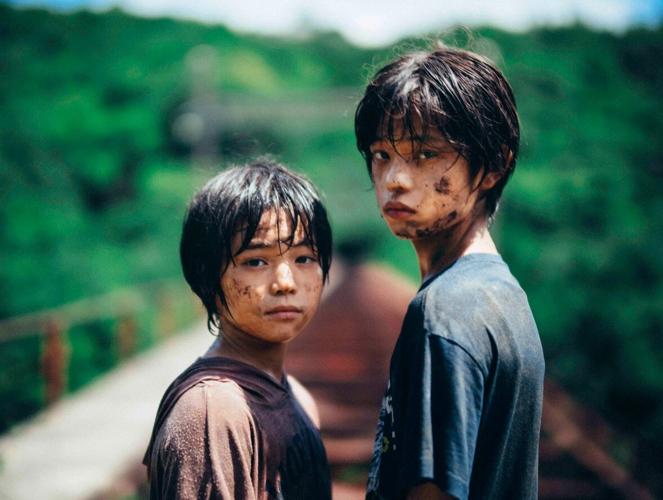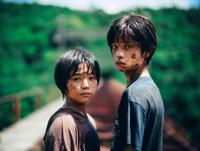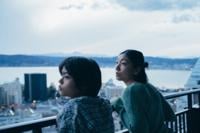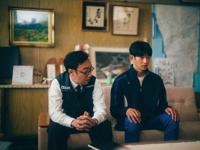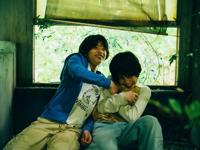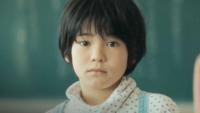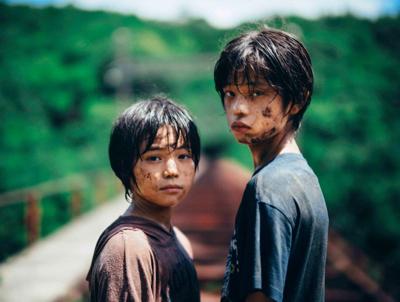Premiering at the 76th Cannes Film Festival in 2023, this film won the Queer Palm, which is an independently-sponsored prize for a selected title and its treatment of LGBTQ themes. It was given a limited theatrical release that year, but, most people on Delmarva probably didn't get a chance to see it on the big screen. June is Pride Month, which is meant to commemorate the LGBTQ struggle for equality and their legal rights. This film is one that might be appropriate if one wants to see why that struggle remains an ongoing issue. No, it's not set in the United States, but, for many, the narrative here remains relevant. It also won Best Screenplay at the Cannes Film Festival and went on to be nominated for 11 Japan Academy Film Prizes, including Best Film and Best Director for Hirokazu Kore-eda.
Its the third time that Koreeda was up for Best Director at the Japan Academy Film Prize. His most outstanding work was for Shoplifters (2018), which was also nominated for Best Foreign Language Film at the United States' 91st Academy Awards. Koreeda tends to make sensitive and compassionate, family dramas. Specifically, his films tend to revolve around men and children. This is particularly so with my favorite of Koreeda's films, Like Father, Like Son (2014) and After the Storm (2017). Koreeda has excelled at telling stories from the perspective of teenage and even prepubescent young people. This is probably exemplified in the first film that I saw from him, that of Nobody Knows (2005), which was about kids trying to overcome their issues without any adult help or even in spite of it. That film starts out focusing on a young mother but then switches perspectives to the kids, and in various ways this film is doing a similar thing, even though Koreeda isn't the screenwriter here.

Sakura Andô (Godzilla Minus One and Shoplifters) stars as Saori Mugino, a single mom living in Nagano. The reason that she's single is because the father of her son died. She lives in a townhouse with her prepubescent son, her one and only child. She works at a dry cleaners, but she feels at times as if she has to be overprotective, so any time there's an issue with her son, particularly at school, she's always right there and often is the first one in attendance. She starts to notice that something is wrong or different about her son after an incident at school. Her goal is to figure out what is happening to him.
The first 40 minutes of the film is told almost exclusively from Saori's perspective. Mostly, it consists of her meeting with the principal and teachers at Johoku Elementary School. She knows that there was an incident and possibly one of violence involving her son. We're meant to feel her frustration because she wants answers about what happened, but everyone she meets keeps stonewalling. All they do is keep giving her vague apologies. There's also a series of scenes of Saori with her son, but we're not given many answers from him. He's not a very verbal person and internalizes a lot.

Eita Nagayama co-stars as Michitoshi Hori aka "Mr. Hori," a teacher at the aforementioned, elementary school. He has classes with Saori's son. Things go wrong when Mr. Hori is accused of bullying and even a moment of hitting Saori's son. There really isn't any dispute over whether Mr. Hori struck Saori's son. The only question is why and what was the context. Because the principal and other administrators at the school don't allow Mr. Hori to explain because they're afraid of a lawsuit, Mr. Hori isn't allowed to simply tell what that context is. That first 40 minutes becomes even more frustrating because it's one repetitive scene after another of no answers or context being given. Yet, in a structure befitting Rashomon (1950), we flashback and get everything we experienced in that first 40 minutes repeated but now we're telling it from Mr. Hori's perspective, which does fill-in that context we needed.
The first 40 minutes could be seen as laying groundwork for this Rashomon-like structure. Some might argue that it's the film spinning its wheels and not really going anywhere. It gives Andô the floor to give a good performance as this frustrated mother. There's even a slight suggestion that her zeal or overprotective nature could be itself problematic or contributing to her son's issues. Again, it's a slight suggestion that her behavior is a factor to her son's issues or maybe she's simply missing something, which she is, but, as the film's structure plays out, the mom's actions don't really factor here at all. My conclusion is that the first 40 minutes were mostly a waste of time and that the film's narrative is only important once we get to Mr. Hori's perspective.

Sōya Kurokawa also co-stars as Minato Mugino, the aforementioned son of Saori. He's in the fifth-grade. He attends the elementary school in question and his teacher is Mr. Hori. He seems like an average boy. He rides his bike everywhere. He seems to like music, particularly playing instruments, but his looks and his hair suggest that he could be in a J-Pop band one day. He's obviously been affected by the death of his father, but he seems fine otherwise. Things change the night of a huge fire that reminds me of the opening of Hayao Miyazaki's The Boy and the Heron (2023), which won the Oscar for Best Animated Feature at the 96th Academy Awards.
Minato begins to notice that another classmate is getting bullied more and more. Students torment Yori Hoshikawa, played by Hinata Hiiragi, picking on his masculinity or lack thereof. Yori hangs around the girls, rather than the boys, so the bullies call him a girl. They also do things toward Yori that are clearly homophobic. It seems as if Yori is gay and it's clear that the kids around him have already gotten the memo that anything gay is a negative or to be perceived as a source of shame. Minato has gotten that memo most of all.

For me, why I think that the first 40 minutes were a waste is because it would have been better to spend that near-hour delving into how Minato or any of these other kids got this so-called homophobic memo. Clearly, they believe or feel that being gay is bad. Where did this belief or feeling come from for them? We do get a scene that reveals that Yori's father is definitely homophobic and is so in almost cartoon-like ways, ways that might befit a Miyazaki film, literally calling his son "pig brain" and leaving bruises on his body. We see that Yori's father wants Yori who looks like he's not even 10 years-old to date a girl. Yet, is that meant to be short-hand for the fathers of every single child in that elementary school, including Minato's?
At one point, we see that Minato has a cell phone. For as much negative stuff there is about LGBTQ people, Minato could also find just as much positive stuff. However, like a lot of films about children in the Internet age that perhaps aren't written by those under the age of 30 or realistically under the age of 20, this film doesn't really give any kind of idea of how that Internet is or isn't affecting the children here. Netflix's Young Royals (2021) probably is the recent piece of media that came the closest in that regard.

Rated PG-13 for brief suggestive material.
Running Time: 2 hrs. and 6 mins.
Available on VOD.


